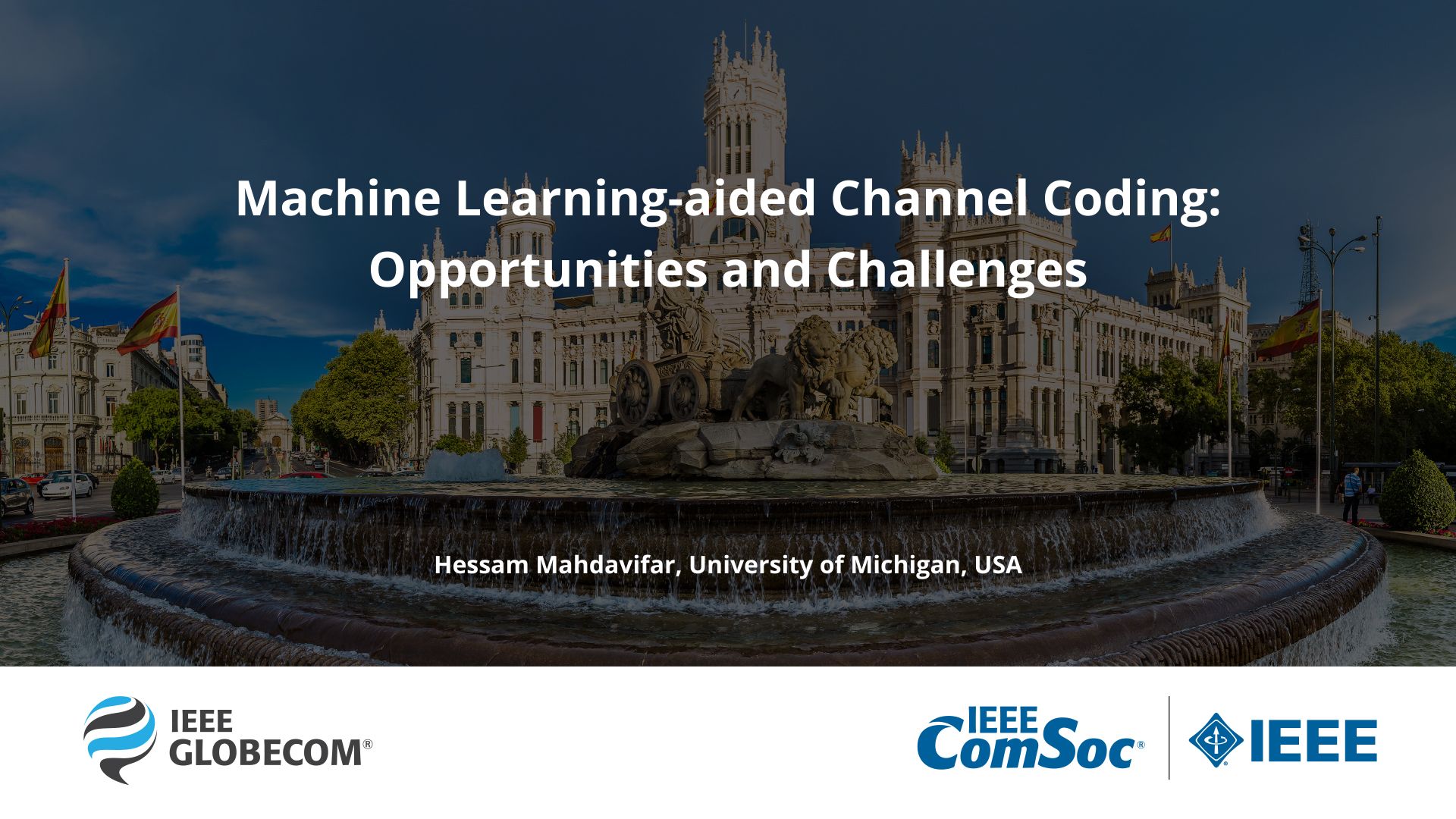
Today, channel codes are among the fundamental parts of any communication system, including cellular, WiFi, and deep space, among others, enabling reliable communications in the presence of noise. Decades of research have led to breakthrough inventions of various families of channel codes. Yet no unified approach exists in answering these two fundamental questions: Given a channel, how do we efficiently construct the best possible code? And given a channel code, how do we design an efficient and optimal decoder? In this talk, we will discuss how the remarkable advancements in data-driven machine learning (ML) can be leveraged toward answering these questions. In particular, we will focus on a class of codes rooting in Plotkin recursive construction. This class includes Reed–Muller (RM) codes as the state-of-the art binary algebraic codes, as well as polar codes, the first capacity-achieving codes with explicit, i.e., non-randomized, constructions. In the first part of this talk, we will present an efficient and close-to-optimal decoder obtained for RM codes by learning a pruning process applied to an exponentially complex decoder. In the second part, we will tackle the fundamental problem of designing new channel codes. In particular, we will demonstrate KO codes, a new class of channel codes designed by training neural networks while preserving Plotkin-like structures. KO codes beat both of their RM and polar code counterparts, under the successive cancellation decoding, in the challenging short-to-medium blocklength regime. We will also discuss various challenges that should be overcome to pave the way for adopting such ML-aided channel coding strategies in practice.


